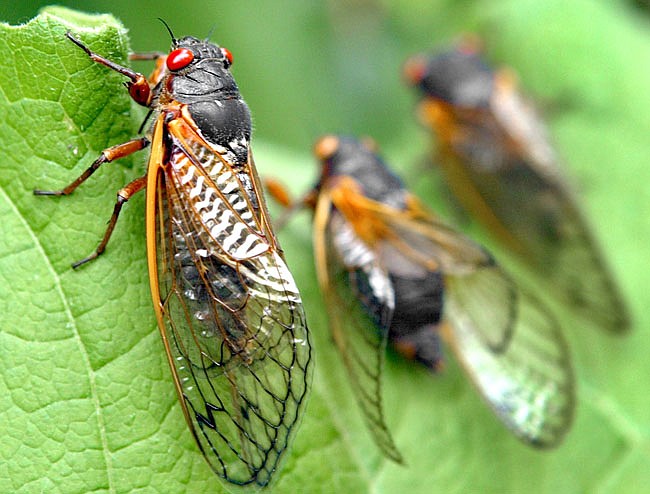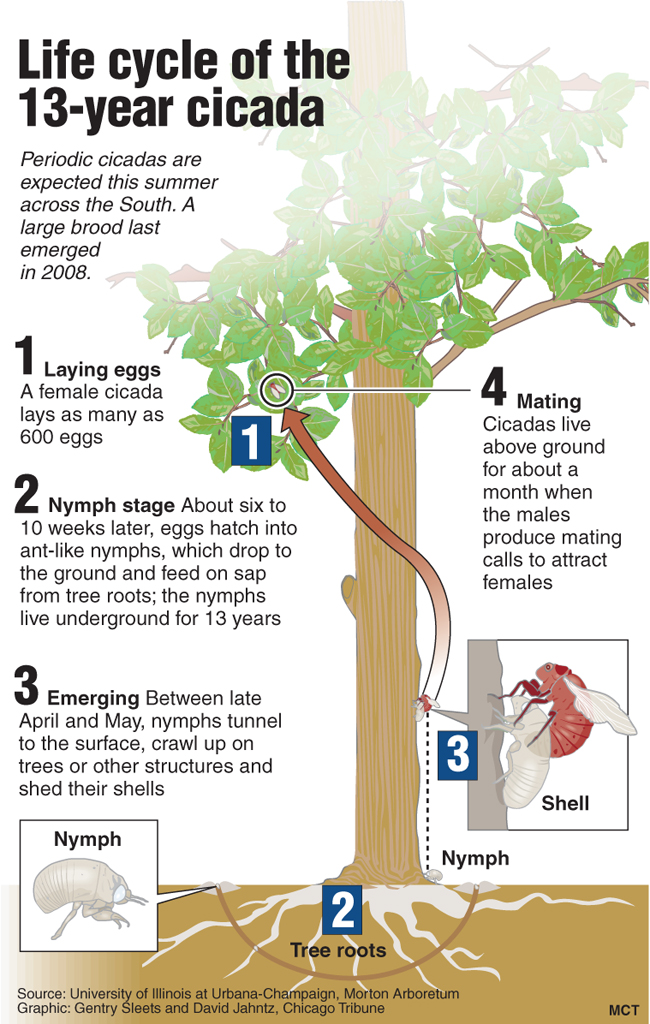TO LEARN MOREBrood XIX is found in a dozen states, from Louisiana to Indiana and Arkansas to Virginia. For more information, visit the University of Michigan's Periodical Cicada Page.
For 13 years they've hidden underground, growing large enough and strong enough to burst from the earth and claim Southeastern Tennessee skies in the name of Brood XIX.
With fierce red eyes and large, spindly wings, millions of the brood's members will fill the late April air with their alien mating cries - an extremely loud blend of clicking, buzzing and whining - ensuring the species lives on.
"It's like an invasion from one of those B movies," Chattanooga city forester Gene Hyde said. "When they come out, it's in the zillions."
Prepare for the Invasion of the Cicada Armada. Local experts say little can be done but watch as these creatures swarm around us.
And after all, experts say, they die off on their own in about a month.
"People think these are locusts that are coming and it's the end of the world, but it's just cicadas," said Tom Stebbins, an expert on the subject in Hamilton County's University of Tennessee Extension Office. "It's a special event in nature that we should just sit back and enjoy."
Though annual cicadas make a relatively small appearance every summer, periodical cicadas like those of Brood XIX appear in huge numbers every three to four years when one of four area broods matures to adulthood. As Chattanooga's soil warms to a consistent 67 degrees, Brood XIX will emerge from the ground and lay eggs for the swarm of 2024.
The bugs don't bite or sting defensively, but that won't keep them from some interaction with local humans.
"Let's say you're walking through from your car to your house, they dive-bomb you," Stebbins said. "They're kind of stupid. They're just flying low to the ground and they just happen to bump into people."
Females may cause some superficial damage to twigs on trees and shrubs when they lay their eggs, but experts don't expect any significant problems from the swarms. Still, no one is likely to overlook Brood XIX's time here.
"I can remember growing up when we used to try to sleep with our windows open, and they'd just sound like you'd have a 20-piece band outside," ABC Tree Services arborist John Thomason said.
Hyde said he tries to find beauty in the bugs, but the noise they make - and cause others to make - can be distressing.
"They make a dickens of a racket," he said. "When my daughters were younger, the youngest would grab them by the handfuls and put them in the hair of the oldest one and they'd run screaming through the house."
Since cicadas have little effect on the environment and die off after their four- to six-week-long mating cycle, Thomason said the best thing for people to do is sit back and enjoy the spectacle.
"Sometimes it's better off to live with a pest than it is to try to deal with and spend money and time and frustration," he said. "It's a pest that's normal; it's been around for millions of years; it's going to be around again."

